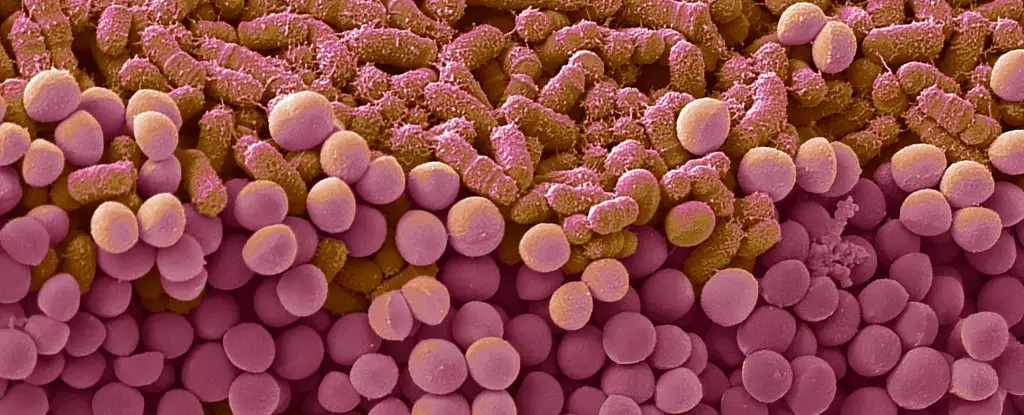For decades, the dieting industry has thrived on the promise of rapid weight loss and sustained healthy habits. Yet, a frustrating pattern persists for many: after initial success, the body often rebounds, sometimes even surpassing previous weight levels—a phenomenon popularly dubbed the ‘yo-yo effect.’ The new frontier in understanding this cycle might lie within the microscopic communities living inside us: our gut bacteria. Recent research suggests that these microbial residents are not passive passengers but active agents that can entrench maladaptive eating behaviors, especially in intermittent dieting regimes.
This groundbreaking discovery challenges the traditional view that weight regain is solely biological or psychological. Instead, it underscores that our microbiome might be a critical, and often overlooked, driver of persistent cravings and binge tendencies after dieting phases. The study’s evidence points to a bidirectional relationship: repeated dieting and refeeding reshape gut bacteria, which in turn influences brain pathways related to reward and pleasure, making unhealthy eating seem not just tempting but inevitable.
Gut Bacteria: The Architects of Our Cravings
The research, conducted using mice as model organisms, demonstrates a compelling cause-and-effect relationship. Alternating between standard and high-fat, high-sugar diets—mimicking the oscillations typical in yo-yo dieting—resulted in persistent alterations within the gut’s microbial communities. When these altered microbiota were transplanted into mice that had not undergone dieting, they exhibited the same binge-eating behaviors, asserting that microbiome changes are not just corollaries but at least partial drivers of these patterns.
What makes this insight particularly provocative is the suggestion that these dietary cycles reconfigure the microbiome in a way that amplifies hedonic appetite—the drive to seek pleasurable foods—rather than satisfying genuine nutritional needs. The brain’s reward centers appear rewired, prioritizing the pleasure derived from certain foods over physical hunger, thus creating a vicious cycle where dietary restraint becomes increasingly futile.
Such findings expose a deeply embedded biological challenge in weight management—one that is not simply about willpower or calorie counting but about the complex ecology within our guts. The microbiOTA not only influences metabolic processes but also shapes how the brain perceives food, reinforcing behaviors that oppose our best intentions.
The Implications for Human Weight Management
While extrapolating from mice to humans warrants caution, the implications of this research are enormous. It suggests that repeated dieting might do more harm than good, as each cycle potentially leaves lasting scars on our gut microbiome. These scars, in turn, entrench us further into the cycle of cravings and binge episodes, undermining our efforts at weight loss and healthy living.
More critically, this may explain why so many individuals find it exceedingly difficult to sustain dietary changes over the long term. Our microbiomes, shaped by repeated diet oscillations, could develop a heightened sensitivity to reward circuits, making it biologically more appealing to indulge than to restrain. In essence, dieting becomes a fight against an internal microbiological and neurological environment that has been rewired in favor of pleasure-driven eating.
The research also opens exciting possibilities for intervention. Instead of solely focusing on calorie restriction or behavioral changes, future therapies might aim to modulate the gut microbiome—restoring microbial diversity and balance to counteract the rewiring caused by yo-yo dieting. Precision probiotics or microbiome-targeted drugs could become vital tools in helping break this vicious cycle.
Challenging Conventional Wisdom and Future Directions
This emerging paradigm compels us to rethink current approaches to obesity and binge eating treatments. If gut bacteria influence brain pathways that govern reward and hunger, then health professionals need to consider microbiome health as a cornerstone of weight management strategies. Meanwhile, scientists must intensify efforts to identify specific bacterial strains involved in promoting or suppressing unhealthy eating behaviors.
Fundamentally, this research underscores the importance of consistent, sustainable eating habits. The damage inflicted by recurrent diet cycles is not just metabolic but also neurobiological and microbiological. Addressing the physical and psychological aspects of eating alone will be insufficient unless we understand and modify the microbial environment that supports these behaviors.
Looking forward, comprehensive human studies, alongside microbiome-focused interventions, could revolutionize how we view dieting and weight loss. It becomes evident that truly sustainable health solutions must acknowledge the profound influence of the gut-brain axis and work to restore its balance, breaking the cycle of deprivation and binge that so many experience.
In the end, understanding our microbiome is not merely a scientific curiosity but a vital component of developing resilient, healthy eating habits—if we can learn how to protect and nurture it effectively.

